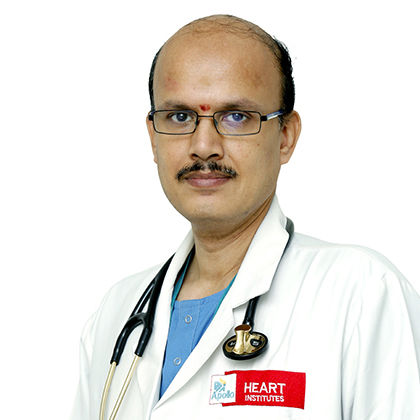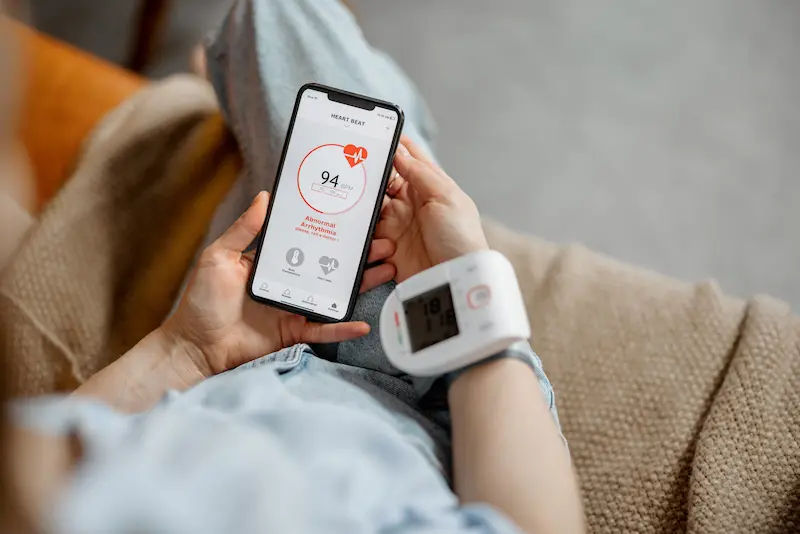Ischemic Heart Disease Vs Coronary Artery Disease: A Guide
Learn the differences and similarities between ischemic heart disease and coronary artery disease. This guide explores causes, symptoms, treatments, and how they impact heart health.

Written by
Last updated on 13th Jan, 2026
Ischemic heart disease, IHD, occurs when the heart is not properly supplied with blood rich in oxygen, normally due to blockages or narrowing of the coronary arteries. This insufficient blood flow may present with chest pain (known as angina), shortness of breath, or even heart attacks. It encompasses various heart abnormalities caused by insufficient blood supply to the myocardium.
Coronary artery disease (CAD), on the other hand, primarily refers to the narrowing or blockage of coronary arteries due to plaque buildup (atherosclerosis). CAD is the most common cause of IHD and forms the basis of the broader category of heart problems related to blood supply deficit. CAD is based on arterial changes, whereas IHD includes the manifestation of symptoms and complications emanating from them.
Let’s approach both of them individually for a deeper understanding.
Understanding Ischemic Heart Disease
Atherosclerosis is the cause of ischemic heart disease, with fatty deposits building up on the walls of the coronary arteries to a point where blood supply is restricted. Others, such as coronary artery spasms and blood clots, tend to immediately restrict or even block blood flow to the heart.
Prevalent risk factors for ischemic heart disease include:
Lifestyle practices such as smoking, unhealthy diets, and lack of exercise
Medical conditions like high blood pressure, high cholesterol, and diabetes
Age, family history, and chronic stress (past or current)
All these factors have the potential to increase the risk of IHD development. In addition, when it comes to IHD symptoms, most common signs include:
Onset of angina, that is, chest pain or discomfort
Shortness of breath
Fatigue
Heart palpitations
Dizziness
Nausea
Prompt recognition of these signs is necessary for proper and early management.
Understanding Coronary Artery Disease
Coronary artery disease (CAD) is diagnosed when the coronary arteries shrink or become blocked. This primarily occurs due to the buildup of fatty plaques in a condition called atherosclerosis. These blockages reduce the flow of oxygen-rich blood to the heart muscle. In addition, spasms of the coronary arteries or sudden blood clots can severely limit or cut off blood flow entirely, leading to acute heart issues.
Prevalent risk factors include:
Smoking, poor dietary habits, and a lack of physical activity
Elevated blood pressure, high cholesterol levels, and poorly managed diabetes
Advancing age, a family history of heart disease, and exposure to prolonged or unmanaged stress
These elements collectively heighten the risk of coronary artery damage and disease progression. The most common signs and symptoms of CAD include:
Chest pain or tightness (angina), often triggered by exertion or stress
Difficulty breathing or shortness of breath
Unexplained fatigue
Irregular heartbeats or palpitations
Feeling lightheaded or faint
Episodes of nause
Consult Top Doctors For Heart Disease
Key Differences between Ischemic Heart Disease and Coronary Artery Disease
Here are some of the key differences between IHD and CAD.
Pathophysiological Differences
Ischemic heart disease (IHD) and coronary artery disease (CAD) are closely related but not identical conditions.
IHD is an umbrella term that describes the insufficient supply of oxygen-rich blood to the heart muscle, often due to issues like narrowed or blocked arteries. It focuses on the functional impact of reduced blood flow and its consequences, such as chest pain, fatigue, or even heart attacks.
CAD, on the other hand, refers specifically to the structural changes in the coronary arteries. These changes occur due to plaque buildup (atherosclerosis), which narrows or blocks the arteries, restricting blood flow to the heart. In essence, CAD is the leading cause of IHD. While CAD describes the underlying physical condition, IHD describes the resulting symptoms and clinical outcomes.
Diagnosis Methods
The diagnostic approaches for IHD and CAD overlap but have distinct focuses. For IHD, the emphasis is on assessing how the heart responds to reduced blood flow. Tests such as stress testing (measuring heart performance under physical or simulated exertion) and ECG (detecting irregular heart activity) are commonly used.
For CAD, the focus is on visualising the structural changes in the arteries. Coronary angiography, where a dye is injected to highlight blockages, and CT angiography, a non-invasive imaging method, are preferred. These tests help pinpoint the location and extent of plaque buildup in the coronary arteries.
Treatment Approaches
The treatment goals for IHD and CAD share similarities but differ in emphasis.
For IHD, the primary objective is to improve blood flow and alleviate symptoms like chest pain and shortness of breath. This is often achieved through medications such as nitrates, beta-blockers, and antiplatelet drugs, along with lifestyle modifications and surgical interventions like angioplasty or bypass surgery when necessary.
For CAD, treatment focuses on reducing plaque buildup and preventing further narrowing of the arteries. Cholesterol-lowering drugs such as statins, along with lifestyle changes, play a critical role. Surgical options, like angioplasty with stent placement, aim to directly restore blood flow by addressing arterial blockages.
Diagnosis of Ischemic Heart Disease
Common diagnostic tests for IHD include:
Electrocardiogram (ECG): Detects irregularities in the heart’s electrical activity
Stress Testing: Evaluates how the heart performs under physical exertion
Echocardiogram: Assesses the heart’s structure and function using ultrasound
Coronary Angiography: Identifies blockages by injecting dye into the coronary arteries
Diagnosing IHD early prevents complications such as heart attacks or long-term heart damage. Early detection allows for interventions that restore blood flow, improve quality of life, and reduce mortality risk.
Diagnosis of Coronary Artery Disease
Common tests for CAD include:
Coronary Angiography: The gold standard for visualising blockages
CT Angiography: A non-invasive alternative to detect plaque buildup
Blood Tests: Measure cholesterol levels and inflammatory markers that indicate arterial changes
Like IHD, detecting CAD early, too, is critical to managing the condition before it progresses to a heart attack. Timely diagnosis enables lifestyle changes, medication, or procedures that can significantly slow disease progression and prevent complications
Get Your Heart Disease Symptoms Checked
Treatment Options
Both IHD and CAD benefit greatly from lifestyle modifications, including a heart-healthy diet, regular exercise, smoking cessation, and stress management. Medications such as statins, beta-blockers, and antiplatelet drugs are commonly prescribed to manage symptoms and reduce risk factors.
In severe cases, procedures like angioplasty with stent placement or coronary artery bypass grafting (CABG) are performed. Angioplasty opens narrowed arteries, while CABG reroutes blood flow around blocked areas, restoring adequate blood supply to the heart.
Managing both conditions involves regular follow-ups, medication adherence, and maintaining a healthy lifestyle. Cardiac rehabilitation programs can further support recovery and reduce the risk of future complications.
Prevention Strategies
Lifestyle modifications primarily work as preventive strategies for IHD and CAD. These include:
Diet: Eat nutrient-rich foods like fruits, vegetables, and whole grains while avoiding saturated fats and processed foods.
Exercise: Engage in at least 150 minutes of moderate aerobic activity per week.
Avoid Harmful Habits: Quit smoking and limit alcohol consumption.
For individuals with high-risk factors, medications like statins for cholesterol control or antihypertensives for blood pressure management are essential. Regular screenings help monitor and address risks before they lead to disease progression.
Conclusion
Ischemic heart disease and coronary artery disease are closely related but distinct conditions. CAD focuses on arterial changes, while IHD describes the impact of restricted blood flow on heart function. Understanding their differences is vital for effective diagnosis and treatment.
Accurate differentiation allows healthcare providers to tailor interventions appropriately, improving patient outcomes. Both conditions require early detection and proactive management to prevent serious complications.
A heart-healthy lifestyle, proactive risk management, and timely medical care are crucial for preventing and managing these conditions. With ongoing advancements in treatment and prevention, individuals can take control of their heart health and lead fulfilling lives
Consult Top Cardiologist
Consult Top Doctors For Heart Disease

Dr. Tripti Deb
Cardiologist
40 Years • MBBS, MD, DM, FACC, FESC
Hyderabad
Apollo Hospitals Jubilee Hills, Hyderabad

Dr. Zulkarnain
General Physician
2 Years • MBBS, PGDM, FFM
Bengaluru
PRESTIGE SHANTHINIKETAN - SOCIETY CLINIC, Bengaluru

Dr. E Prabhakar Sastry
General Physician/ Internal Medicine Specialist
40 Years • MD(Internal Medicine)
Manikonda Jagir
Apollo Clinic, Manikonda, Manikonda Jagir
(175+ Patients)

Dr. Rakesh Gopal
Cardiologist
22 Years • “ Trained in Trans Aortic Valve Implantation ( TAVI ) from Mehmet Akif Ersoy Hospital Istanbul, Turkey “ & MD (General Medicine), FRCP (Glasglow)DNB( Cardiology), FESC, HICR Cert (Harvard University, USA), Angioplasty Training from Washington Adventist Hospital USA, Asan Medical Centre, Seoul Korea, Board certified in Cardio Oncology, ICOS- USA
Chennai
Apollo Hospitals Greams Road, Chennai
(100+ Patients)

Dr. Srinivasan K N
Cardiologist
11 Years • MD, DNB (Cardio)
Chennai
Apollo Hospitals Greams Road, Chennai
(200+ Patients)
Consult Top Doctors For Heart Disease

Dr. Tripti Deb
Cardiologist
40 Years • MBBS, MD, DM, FACC, FESC
Hyderabad
Apollo Hospitals Jubilee Hills, Hyderabad

Dr. Zulkarnain
General Physician
2 Years • MBBS, PGDM, FFM
Bengaluru
PRESTIGE SHANTHINIKETAN - SOCIETY CLINIC, Bengaluru

Dr. E Prabhakar Sastry
General Physician/ Internal Medicine Specialist
40 Years • MD(Internal Medicine)
Manikonda Jagir
Apollo Clinic, Manikonda, Manikonda Jagir
(175+ Patients)

Dr. Rakesh Gopal
Cardiologist
22 Years • “ Trained in Trans Aortic Valve Implantation ( TAVI ) from Mehmet Akif Ersoy Hospital Istanbul, Turkey “ & MD (General Medicine), FRCP (Glasglow)DNB( Cardiology), FESC, HICR Cert (Harvard University, USA), Angioplasty Training from Washington Adventist Hospital USA, Asan Medical Centre, Seoul Korea, Board certified in Cardio Oncology, ICOS- USA
Chennai
Apollo Hospitals Greams Road, Chennai
(100+ Patients)

Dr. Srinivasan K N
Cardiologist
11 Years • MD, DNB (Cardio)
Chennai
Apollo Hospitals Greams Road, Chennai
(200+ Patients)
Consult Top Cardiologist

Dr. Tripti Deb
Cardiologist
40 Years • MBBS, MD, DM, FACC, FESC
Hyderabad
Apollo Hospitals Jubilee Hills, Hyderabad

Dr. Zulkarnain
General Physician
2 Years • MBBS, PGDM, FFM
Bengaluru
PRESTIGE SHANTHINIKETAN - SOCIETY CLINIC, Bengaluru

Dr. E Prabhakar Sastry
General Physician/ Internal Medicine Specialist
40 Years • MD(Internal Medicine)
Manikonda Jagir
Apollo Clinic, Manikonda, Manikonda Jagir
(175+ Patients)

Dr. Rakesh Gopal
Cardiologist
22 Years • “ Trained in Trans Aortic Valve Implantation ( TAVI ) from Mehmet Akif Ersoy Hospital Istanbul, Turkey “ & MD (General Medicine), FRCP (Glasglow)DNB( Cardiology), FESC, HICR Cert (Harvard University, USA), Angioplasty Training from Washington Adventist Hospital USA, Asan Medical Centre, Seoul Korea, Board certified in Cardio Oncology, ICOS- USA
Chennai
Apollo Hospitals Greams Road, Chennai
(100+ Patients)

Dr. Srinivasan K N
Cardiologist
11 Years • MD, DNB (Cardio)
Chennai
Apollo Hospitals Greams Road, Chennai
(200+ Patients)


